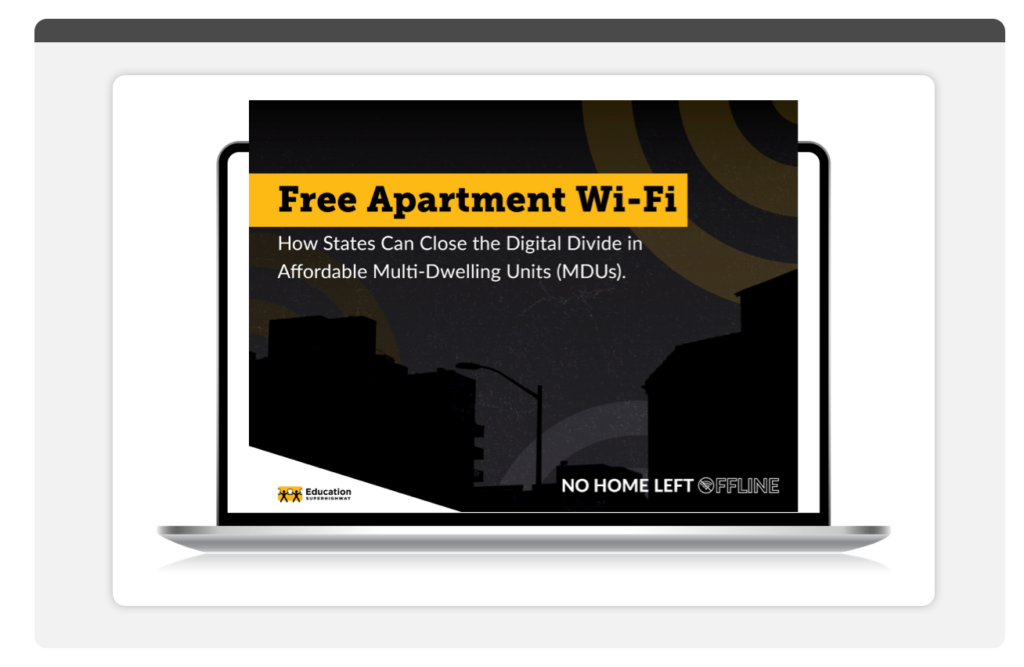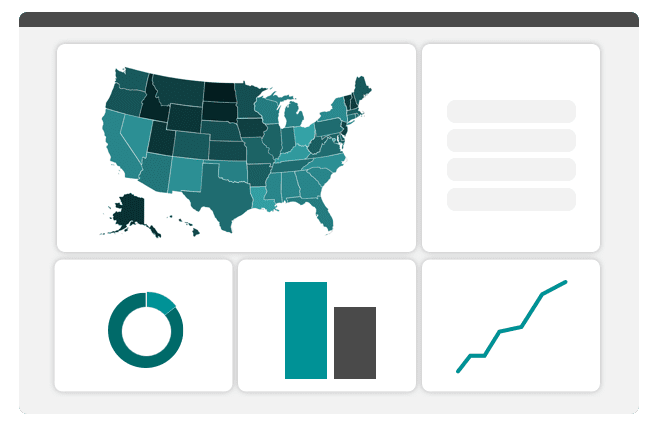SAN FRANCISCO, CA – March 17, 2022 – Today, a coalition of organizations focused on broadband policy, housing, and addressing challenges facing under-resourced communities in our nation’s cities and throughout the country called for urgent action to ensure unserved households in multifamily residential housing (MDUs) are correctly identified when broadband funding is allocated.
In a letter to Secretary of Commerce Gina Raimondo, the group, led by the national non-profit EducationSuperHighway, urged the National Telecommunications and Information Administration (NTIA) to use its authority to encourage states to supplement new FCC Maps with data that identifies specific apartment units that lack access to reliable broadband service.
While applauding Federal Communications Commission (FCC) efforts to strengthen their maps and identify whether an apartment building has an internet connection, the coalition highlights the need to accurately count unconnected units within each building to deliver on the shared goal of closing America’s digital divide.
“States must be encouraged and allowed to collect supplemental data from ISPs to identify unserved MDU households,” said Evan Marwell, Founder and CEO of EducationSuperHighway. “Access to broadband is an integral part of participating in the 21st-century, and these unserved, unconnected communities cannot be relegated to the back of the line solely based on the physical structure within which they reside.”
The letter highlights improvements in Wi-Fi technology have made it possible to connect households living in MDUs to reliable broadband service simply by deploying Wi-FI access points in the hallways and then connecting the Wi-Fi network to a high-speed broadband connection to the building. These reliable, high-speed networks can be deployed in months, not years, and have the potential to quickly and cost-effectively connect millions of unserved and unconnected households living in low-income apartments, rentals, housing cooperatives, and public housing. These are the very same households who represent a large percentage of the most unconnected households in America: very low-income renters and communities of color.
Led by EducationSuperHighway, the coalition includes:
African American Mayors Association
Benton Institute for Broadband & Society
CoSN – Consortium for School Networking
Council for Affordable and Rural Housing
HPN – Housing Partnership Network
Institute for Real Estate Management
MMTC – Multicultural Media Telecom and Internet Council
National Affordable Housing Management Association
National Apartment Association
National Association of Home Builders
National Association of Housing Cooperatives
National Digital Inclusion Alliance
National Leased Housing Association
NAFSCE – National Association for Family, School, and Community Engagement
NMHC – National Multifamily Housing Council
NSBA – National School Boards Association
New America – Open Technology Institute
Stewards of Affordable Housing for the Future
View a copy of the letter sent to Secretary Raimondo here.
ENDS
For all media inquiries, please email press@educationsuperhighway.org





